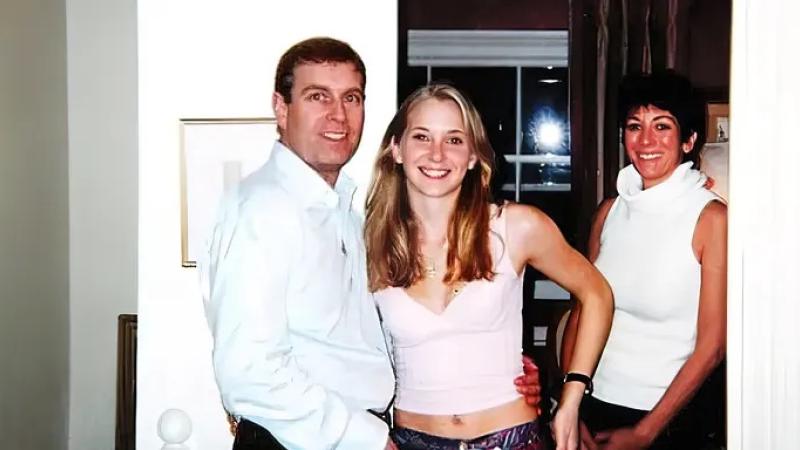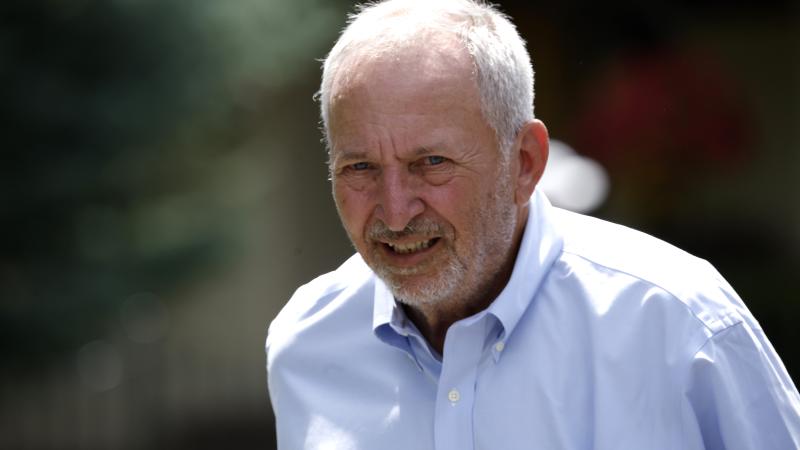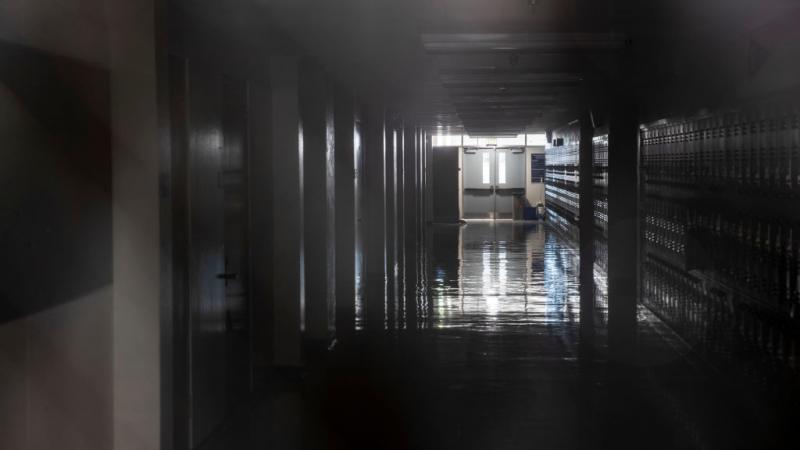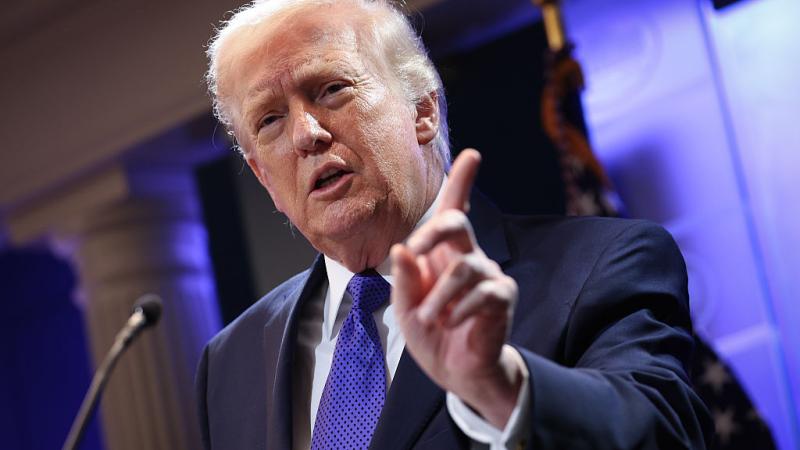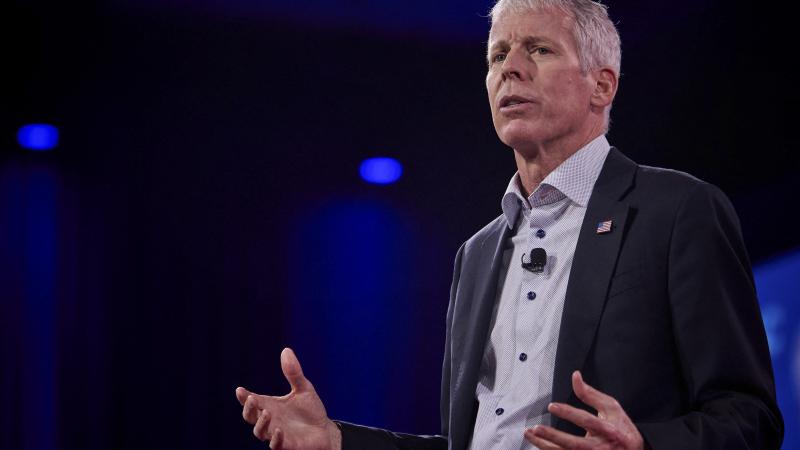Special Counsel for Biden’s classified docs to testify before House Judiciary Committee
Robert Hur, who investigated President Biden’s mishandling of classified documents, is set to testify before the House today to shed light on the report’s conclusions.
The Special Counsel who led the investigation into President Joe Biden's handling of classified documents is set to testify before the House Judiciary Committee Tuesday as Republicans seek answers about his report.
The report, released by Special Counsel Robert Hur in early February, found Biden “willfully” kept classified documents and shared them with the ghostwriter of his memoir. Yet, the special counsel recommended no charges, in part because of concerns about the president’s memory.
“The need to show my work was especially strong here. The Attorney General had appointed me to investigate the actions of the Attorney General’s boss, the sitting President of the United States. I knew that for my decision to be credible, I could not simply announce that I recommended no criminal charges and leave it at that. I needed to explain why,” Hur wrote in opening remarks, which were obtained and reviewed by The Hill ahead of his appearance.
“My assessment in the report about the relevance of the President’s memory was necessary and accurate and fair. Most importantly, what I wrote is what I believe the evidence shows, and what I expect jurors would perceive and believe. I did not sanitize my explanation. Nor did I disparage the president unfairly. I explained to the Attorney General my decision and the reasons for it. That’s what I was required to do,” Hur wrote.
The findings of the report spurred House Republicans to seek Hur’s testimony as well as the transcript of President Biden’s interview after the president appeared to contradict the report in a press conference immediately following its release.
Hur’s testimony before a panel led by the House Judiciary Committee is likely to shed light on the major takeaways of his wide-ranging report: that the President “willfully” retained several classified memos, that he shared some information with his ghostwriter, and that he suffers from “significant limitations” to his memory — contributing to the decision not to charge him.
The report can be read below:
Hur found Biden “willfully retained and disclosed classified materials after his vice presidency when he was a private citizen” after his team uncovered memos relating to military and foreign policy in Afghanistan and notebooks with handwritten notes about national security and foreign policy, including information about sensitive sources.
The report also found Biden shared some classified information with the ghostwriter who was working on the former vice president’s memoir shortly after he left office in 2017. In a press conference after the release of the report, President Biden disputed this classification, claiming he did “not share classified information.”
The report also included an index of the classified documents recovered by Hur's team. A talking points memo and a telephone call transcript with the Ukrainian prime minister from a key period in Hunter Biden’s Burisma Holdings employment were found among the classified memos.
In a folder titled “VP Personal” DOJ investigators found two documents relating to a December 11, 2015, call between then-Vice President Biden and then Ukrainian Prime Minister Arseniy Yatsenyuk.
“A Telephone Call Sheet setting forth the purpose of and talking points for a call with Ukrainian Prime Minister Yatsenyuk,” the summary of the first document reads.
“There is a handwritten note addressed to Mr. Biden's executive assistant: ‘Get copy of this conversation from Sit Rm for my Records please’ that is signed ‘Joe.’,” the summary continues.
The second document is the full transcript documenting this call with the prime minister.
In another location, the investigators found a memo titled "U.S. Energy Assistance to Ukraine," dated to September 2014, just months after Hunter Biden formally joined the board of Burisma Holdings, the Ukrainian energy company.
Despite these findings, Hur concluded it "would be difficult to convince a jury that they should convict him — by then a former president well into his eighties — of a serious felony that requires a mental state of willfulness,” and therefore, decided against bringing charges.
Biden’s performance during the five hour interview with Hur’s team also raised concerns about the president’s memory and ability to recall information, according to the report, and likely contributed to the decision to forgo charges.
The report noted that President Biden “appeared to have significant limitation” both in recordings with ghostwriter of his memoir—Mark Zwonitzer—in 2017 and during his 2023 interview with the special counsel’s team.
“Mr. Biden's recorded conversations with Zwonitzer from 2017 are often painfully slow, with Mr. Biden struggling to remember events and straining at times to read and relay his own notebook entries,” Hur’s report said of the recorded memoir planning sessions.
Yet, when President Biden sat for a five hour interview with Hur’s team in 2023, his memory was “worse,” failing to recall the years of his vice presidency and forgetting the year – 2015 – that his son, Beau Biden, died after a battle with brain cancer, according to the report.
“He did not remember when he was vice president, forgetting on the first day of the interview when his term ended ('if it was 2013 - when did I stop being Vice President?'), and forgetting on the second day of the interview when his term began ('in 2009, am I still Vice President?'),” Hur wrote.
Biden’s team pushed back vehemently against the characterizations of the president’s memory and Hur’s overarching conclusions about how he handled classified information.
“We do not believe that the report's treatment of President Biden's memory is accurate or appropriate,” the White House wrote Hur in a letter, appended to the report. “The report uses highly prejudicial language to describe a commonplace occurrence among witnesses: a lack of recall of years-old events,” the letter continues.
Regarding the report’s conclusion that he shared classified information with his ghostwriter, Biden said: “I did not share classified information, I did not share it.”
“I was in the middle of handling an international crisis,” Biden said of his extensive interview with Hur.
“I just believed that’s what I owed the American people so they could know no charges would be brought and the matter closed,” he added.
House Republicans have struggled to secure the transcript of President Biden’s interview with special counsel Hur, which would shed light on Biden’s memory allegations and how Biden’s attorney’s conducted parts of the interview that may have touched on the sensitive documents, especially those relating to Ukraine.
Shortly after it was released publicly, the three House committees leading the impeachment inquiry into President Biden requested copies of the classified documents found by Hur and the full transcript of the interview with the president.
“As explained to Mr. Hur in October, there is concern that President Biden may have retained sensitive documents related to specific countries involving his family’s foreign business dealings,” Chairmen James Comer of the Oversight Committee, Jim Jordan of the Judiciary Committee, and Jason Smith of the Ways and Means Committee wrote in a letter.
“Throughout Mr. Hur’s report, there is reference to a transcript of an interview conducted with President Biden on October 8 and October 9, 2023,” the Chairmen added later. “The Committees require this transcript and any other records of this interview, including, but not limited to, any recordings, notes, or summaries of the interview.”
After the DOJ was initially unresponsive to House Republicans’ request for the transcript of Biden’s interview and other materials related to special counsel Hur’s investigation, the committees subpoenaed the documents. Yet, the March 7 deadline passed, and the department did not provide the required information.
“We received a small production from DOJ, but not the transcripts or audio that we need and requested,” the spokesman for the House Judiciary Committee told Fox News last Friday.
"Our staff has all necessary clearances to review the contents of the President’s interview, which dealt with materials found in unsecured areas like garages, closets and commercial office space. We are evaluating next steps,” he added.
The DOJ responded to the Republican requests, highlighting their cooperation, according to Fox News: “Given this record, we are disappointed that the Committee chose to serve a subpoena less than three weeks after Mr. Hur’s report was transmitted to Congress and only seven business days after the Department made clear it was working expeditiously to respond in good faith to congressional requests on this matter. This compressed time frame is not reasonable given the standard interagency review process the Department explained to the Committee."
"Your subpoena is premature and unnecessary given the amount of information the Committee has already received and the Department’s proactive efforts to prepare for responding to congressional requests on this matter" the DOJ responded.


